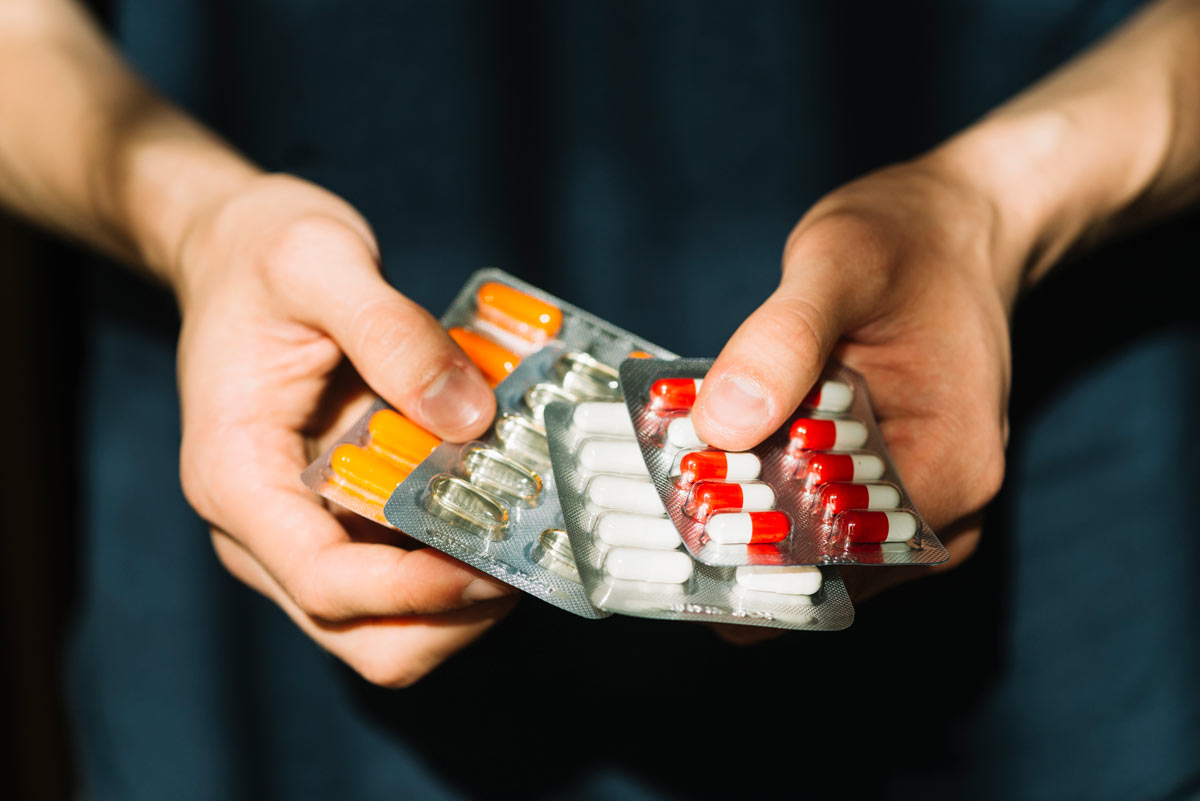Are you or a loved one struggling with Attention-Deficit/Hyperactivity Disorder (ADHD)? You’re not alone. ADHD can significantly impact daily life, making it challenging to focus, stay organized, and manage tasks effectively. While medication is a common treatment option, concerns about addiction and dependency have led many to seek non-addictive alternatives. In this informative guide, we’ll explore non-addictive ADHD medications, their benefits, and why they may be a safer choice for you.
What Are ADHD Medications
ADHD medications primarily fall into two categories: stimulants and non-stimulants. Stimulants, such as Adderall and Ritalin, are effective but come with the risk of addiction and abuse. Non-stimulant medications, on the other hand, offer a safer option for managing ADHD symptoms.
What Are The Traits Of Non-Addictive ADHD Medications
Non-addictive ADHD medications are carefully formulated to provide relief from ADHD symptoms without the potential for addiction or dependency. They are designed to:
- Promote Neural Balance: These medications work by regulating neurotransmitters in the brain, helping to improve focus and reduce impulsivity.
- Minimize Side Effects: Non-addictive medications often have fewer side effects compared to stimulants, making them a preferred choice for many.
- Long-Term Safety: They can be used for extended periods without the same risks associated with stimulant medications.
Benefits of Non-Addictive ADHD Medications
Reduced Risk of Addiction
One of the primary advantages of non-addictive ADHD medications is that they do not carry the same potential for addiction and abuse as stimulant medications. This is a crucial consideration for individuals who may be concerned about developing dependency.
Effective Symptom Management
Non-stimulant medications have been found to effectively manage ADHD symptoms, including inattention, hyperactivity, and impulsivity. They can help individuals lead a more balanced and focused life.
Lower Side Effects
Compared to stimulant medications, non-addictive ADHD options are associated with a lower incidence of side effects. While individual responses can vary, many people find that non-addictive medications offer a more comfortable and sustainable treatment experience. This reduced risk of side effects can enhance treatment adherence and overall satisfaction with the chosen therapy.
Long-Term Use
Non-addictive ADHD medications are suitable for long-term use, offering a consistent and stable solution for managing ADHD symptoms over time.
Non-Addictive ADHD Medications/Treatments
Non-addictive ADHD medications and treatments offer effective ways to manage ADHD symptoms without the risk of dependency. Here are some examples:
1. Atomoxetine (Strattera):
Atomoxetine is a non-stimulant medication that works by increasing the levels of norepinephrine in the brain. It helps improve attention, reduce impulsivity, and manage hyperactivity.
2. Guanfacine (Intuniv) and Clonidine (Kapvay):
These are alpha-2 adrenergic agonists that are often used to treat ADHD. They help regulate certain receptors in the brain, leading to improved focus and impulse control.
3. Behavioral Therapy:
Behavioral therapy, such as Cognitive-Behavioral Therapy (CBT), can be an effective non-medication approach to managing ADHD. It teaches individuals strategies to control their behavior and develop organizational skills.
4. Dietary Changes:
Some individuals with ADHD find relief by making dietary modifications. This may include reducing sugar and processed foods, increasing omega-3 fatty acids, and ensuring a balanced diet.
5. Exercise and Physical Activity:
Regular physical activity can help individuals with ADHD by increasing dopamine and norepinephrine levels in the brain. It can improve focus and reduce hyperactivity.
6. Mindfulness and Meditation:
Mindfulness techniques and meditation practices can enhance self-awareness and self-control, which are beneficial for managing ADHD symptoms.
7. Supplements:
Certain dietary supplements, such as omega-3 fatty acids, zinc, and magnesium, have shown promise in alleviating ADHD symptoms. However, it’s essential to consult with a healthcare provider before using supplements.
8. Neurofeedback:
Neurofeedback is a non-invasive therapy that aims to train the brain to function more efficiently. It can help individuals with ADHD improve their focus and self-regulation.
These non-addictive medications and treatments offer diverse options for individuals seeking effective ADHD management strategies. It’s important to work closely with a healthcare provider to determine the most suitable approach based on individual needs and preferences.
Are Non-Addictive ADHD Medications Right for You?
Choosing the right ADHD medication is a personal decision, and it’s essential to consult with a healthcare professional to determine the best option for your specific needs. If you or someone you know is considering non-addictive ADHD medications, Ocean Hills Recovery can provide expert guidance and support.
Receive Addiction Treatment With Ocean Hills Recovery
If you or a loved one is struggling with Adderall addiction, it’s essential to take the first step towards a healthier and addiction-free life. Ocean Hills Recovery is here to provide the specialized care and support you need to overcome Adderall addiction.
Don’t let Adderall addiction control your life any longer. Contact Ocean Hills Recovery today to embark on your path to recovery and rediscover a life filled with hope, health, and happiness.
Frequently Asked Questions (FAQs)
Are non-addictive ADHD medications as effective as stimulants?
Non-addictive ADHD medications can be highly effective for many individuals. Their effectiveness may vary from person to person, so it’s essential to work closely with a healthcare professional to find the right fit.
Do non-addictive medications require a prescription?
Yes, most non-addictive ADHD medications require a prescription from a qualified healthcare provider.
Are there any potential side effects of non-addictive ADHD medications?
While non-addictive medications tend to have fewer side effects, they can still have some. Your healthcare provider will discuss potential side effects and monitor your progress.
Can non-addictive ADHD medications be used long-term?
Yes, non-addictive ADHD medications are suitable for long-term use, providing a stable solution for managing symptoms over an extended period.
How can I get started with non-addictive ADHD medications?
To begin non-addictive ADHD medication treatment, schedule an appointment with a healthcare provider who specializes in ADHD. They will evaluate your needs and create a tailored treatment plan.
With non-addictive ADHD medications, you can take control of your ADHD symptoms without the worry of addiction. Contact Ocean Hills Recovery today and start your journey towards a more focused and balanced life.













